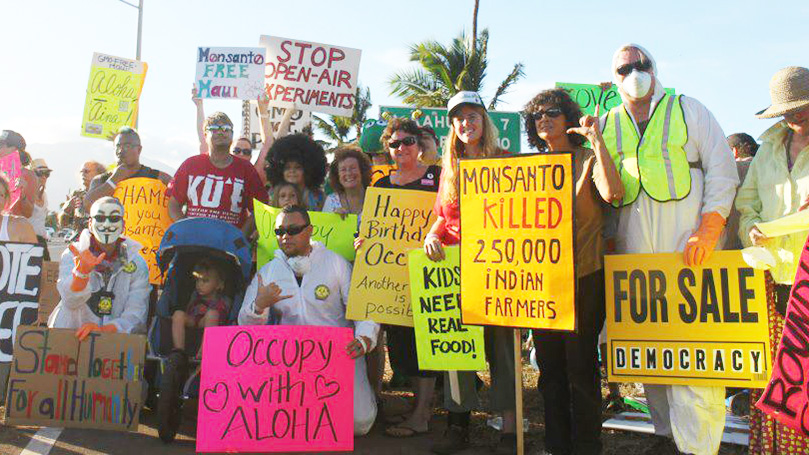
Commenting on the situation of Puerto Rico in the disastrous aftermath of Hurricane Maria, journalist and activist Rosa Clemente said of the US government: “They want a Puerto Rico without Puerto Ricans for a playground.” Indeed, over the years, the US colony has been transformed into a business- and expat-friendly financial playground for the mainland’s wealthy—at the expense of Puerto Ricans living there. We are continuing to see new shades of the havoc this transformation has wrought on the island as the recovery effort limps along, starved of necessary resources and support.
The ongoing tragedy unfolding in Puerto Rico deserves our continued attention, but I would like to highlight the parallel, if relatively slow-burning, transformation underway in my own island home in Hawaiʻi.
Native Hawaiʻians, who too have suffered over a century of cultural genocide and economic deprivation, are increasingly being driven out of the islands by the rising cost of living tied to a lack of food sovereignty and rising property taxes driven sky-high by real estate speculation, tourism, and resort development.
Indeed, Hawaiʻi stands with the greats as a case study for settler colonialism and capital extraction. The effects of these developments are felt by non-Hawaiʻian working-class people like myself, but the outcomes are especially acute for Native Hawaiʻians.
The removal of Native Hawaiʻians, or at the very least, the destruction of their culture, is a prime example of settler colonialism, which serves as the United States’ foundation and is strangling Puerto Rico today. Not only does the presence of Native Hawaiʻians on traditional homelands eat up space that could be occupied by resorts, condos, or high-rent housing for wealthy transplants, but traditional Hawaiʻian relationships to the land, which center around balance and sustainability, are anathema to capitalism’s relentless drive for compound growth.
Companies in Hawaiʻi make ample use of the word “aloha”—ironically, “empathetic compassion,” to give one definition—in marketing, and no ad campaign would be complete without plenty of lei and hula, but make no mistake: Native Hawaiʻians and Hawaiʻian culture are bad for business, and capital has no love for either, save for when they serve to legitimate the continued extraction of capital from the islands.
The effects of capital’s relationship to Hawaiʻi are evident in the natural world as well. The numerous diversions of rivers and streams on my home island of Kauaʻi have real effects on water quality, natural habitats, and the availability of water to loʻi kalo (taro patches) or paniolo—the ranchers of Hawaiʻi—trying to water their cattle. Likewise, our beaches and oceans are severely impacted by tourism development; ironically, it took devastating flooding in 2018 causing the closure of public access to Keʻe Beach, a popular tourist destination on Kauaʻi’s North Shore, for the ecosystem to rebound from the stress of constant human intervention.
We should not forget the state of nutrition in Hawaiʻi, either. According to some estimates, were a natural disaster to cut Hawaiʻi off from the mainland, it would only have enough food to sustain itself for 11 days. What food we do get is often more expensive, as a result of it being imported from the mainland or other countries at considerable expense, and less nutritious, due to long shipping times and a preponderance of preservative-laden products.
All this despite the rich capacity for the land here to provide bountiful and nutritious foods from sustainable sources and processes mastered by kūpuna, Hawaiʻi’s ancestors. According to Dr. Sam ‘Ohu Gon III, before European contact, Native Hawaiʻians on Maui sustained comparably large populations with only a 15% human footprint on the ecosystem, compared to a meager 15% sustainability today, with a full 85% human footprint on the island. But sustainability is bad for business.
I and many others count ourselves lucky to live in paradise, but too many of us, especially the most vulnerable and oppressed, find it increasingly impossible to carve out a life here, as capital converts the world’s most beautiful and biodiverse place into a site of playground for extraction, at the cost of its environment and people.
Image: Keoki Medeiros, Facebook.


 Join Now
Join Now